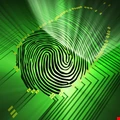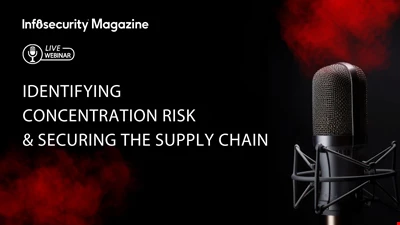Infosecurity Magazine Features

Comprehensive Cybersecurity: Securing the Human Operating System
In honor of National Cybersecuirty Awareness month in the US, Eric Cole of the SANS Institute highlights the role of people in any comprehensive security program

SCADA Security Inertia
It’s no secret that SCADA systems are vulnerable to compromise, and the tools to mitigate many of the vulnerabilities are within reach. Yet, as Fred Donovan discovers, the vendors that supply these systems are often slow to react to the security issues

Application Forecast: Partly Cloudy
With the market for cloud-based applications exploding, Stephen Pritchard tells security professionals what they need to know about software-as-a-service

Hard, Soft, or Smart? Evaluating the Two-Factor Authentication Options
Engineer and researcher Grant Le Brun evaluates the current landscape for two-factor authentication

The Potential Weaknesses in a Virtualized Infrastructure
IEEE’s Kevin Curran examines the weak points of virtualized infrastructures and the solutions everyone should consider

The Growing Movement in Social Responsibility
Julie Peeler, director of the (ISC)² Foundation, examines how the IT security community is prioritizing its contribution to society

Should You Give Biometrics a Break?
Biometric identification has been around for more than 100 years. Davey Winder investigates its relevance and feasibility for the IT security world today

Looking Good on Paper
Take note when warned of digital data loss, says Danny Bradbury – but don’t forget to secure your paper-based documents. It may be harder than you think

Stoking the Flames of Cyber War
Call it Flame, Flamer, sKyWIPer, or Stuxnet’s father – the labels simply don’t matter. Drew Amorosi concludes that one well-crafted piece of malware can be more valuable than a thousand secret agents

Security’s Alleged Disappearing Act
Recent acquisitions in the market have given rise to the notion of embedded security, rather than security as an add-on layer. Wendy M. Grossman discovers that this is only one of many trends shaping the future of data protection

Watching Big Brother: The Hypocrisy of Internet Censorship
State-level censorship of the internet is becoming more common and easier to achieve. But it’s not only the populations of undemocratic countries who should be worried, finds Jim Mortleman

Battling the Underground World of Cybercrime
The cybercrime black market can be unruly and often unreachable. Ted Kritsonis examines what modern-day versions of Eliot Ness are doing to confront the situation

Building a Resilient Cyber Response
When it comes to cyber attacks, a carefully formulated response may be just as critical as efforts to prevent them. The Information Security Forum’s Michael de Crespigny says resilience is the key when defenses fail

The US vs. China: A Very Civil (Cyber) War
Is China conducting a silent electronic war with the US? Sure, says Danny Bradbury – but so is everyone else

Critical Infrastructure Mania
What do classic Beatles songs and protecting critical infrastructure have in common? Come join Fred Donovan on this ‘Magical Mystery Tour’ to find out

The 'Perception' of DLP
Think you can purchase the latest application and all of your data loss worries will disappear? Think again, says John Walker. To this security expert, DLP is about more than technology

Follow the Money: The Economics of Fake Anti-virus
Fake anti-virus remains a high-level threat for the most vulnerable of computer users. Danny Bradbury tracks the money

Let’s Get This BYOD Office Party Started
The most dangerous security aspect of BYOD, according to many experts, is the apps that personal devices run, not the operating system or hardware. Fred Donovan examines how organizations can say ‘yes’ to employee-owned devices while still maintaining control of their data

Preventing an Olympic-sized Disaster
With the London 2012 Olympics almost upon us, Stephen Pritchard looks at the wider impact that the Games may have on London and the UK’s infrastructure. He finds that networks, businesses, transportation and remote working are all causes for concern

The Web of Piracy
Proposals to curb online piracy in the US boiled over into high-profile digital protests this past winter. Drew Amorosi examines what the fuss is all about



